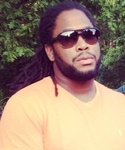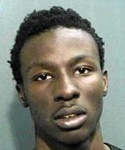Cornell Smith pleaded guilty to voluntary manslaughter and unlawful possession of a firearm On February 13, marking the end of a seven-year long case investigating the murder of 22-year-old Northeastern University student Rebecca Payne in her Mission Hill apartment on May 20, 2008.
Smith, 33, was charged with first-degree murder, unlawful possession of a firearm and armed assault in a dwelling. Assistant District Attorney Ian Polumbaum and Smith’s attorney, John Amabile, recommended that Smith be charged with voluntary manslaughter instead of first-degree murder and dropping the armed assault in a dwelling charge.
Judge Locke accepted the guilty plea and sentenced Smith to 18 to 20 years in state prison. He will serve sentences for voluntary manslaughter and unlawful possession of a firearm concurrent with a federal drug charge he is currently incarcerated for.
In court, Polumbaum recounted the details of the crime, Smith’s involvement, and what eventually led to his arrest.
Arrested in February 2008 for selling cocaine in the Boston Common area, Smith went to Payne’s apartment on May 20, 2008, looking to confront one of two sisters he suspected caused his arrest. When Smith climbed the balcony of 170 Parker Hill Ave, and entered Payne’s apartment, he was unaware that the woman he was looking for lived two floors below.
Around 3:26 a.m., Payne’s neighbors reported hearing a female scream and multiple gunshots, but no one called 911.
Payne’s body wasn’t discovered until 6:30 a.m. when a tenant noticed her apartment door was ajar. She had been shot five times — twice in the legs, once in the chin, and twice in the torso. Smith fled the scene and prosecutors said several years went by without leads or suspects in Payne’s death.
Police said surveillance footage, phone and cell tower records, and other evidence led them to believe that Smith was at the scene of the crime with another man, Michael Balba of Billerica. According to Polumbaum, a key witness saw Balba driving the car that brought Smith to and from the apartment. But in May 2014, this key witness died unexpectedly, ending the case against Balba and putting the case against Smith at risk.
In late 2008, Smith began serving a federal sentence for drug distribution. Since being incarcerated, he wrote letters to the federal court and one letter apologized to the Payne family. These letters were recovered in October 2014. A statement from the Suffolk County District Attorney’s Office quoted one of the letters, which described the assault in Smith’s own words, “which was leading to the unfortunate passing of Rebecca Payne at the hands of I, Cornell Alan Smith, Sr.”
Before the sentencing, a group of Payne’s friends and family members delivered victim impact statements. These speakers included the Payne family’s pastor, old family friends, Payne’s friends from Northeastern University, and both of her parents.
Some speakers, such as Lauren Ziaks, one of Payne’s best friends, addressed Smith directly as they recounted the struggle and loss they felt after Payne’s death. Others, such as close family friend Mary O’Sullivan, read statements from others who were unable to attend the court hearing.
Virginia and Nicholas Payne, Rebecca’s parents, spoke of the daughter they lost but also hoped to find forgiveness for the man who killed hr. Virginia Payne, through tears, said, “Mr. Smith has stripped us of everything we have, leaving us with a life sentence.” But in her hand was a yellow rose, a gift she and her husband had given to each of the speakers who spoke at court. At the end of her statement, Virginia Payne asked Judge Locke if it could be given to Smith. Judge Locke declined and she passed the rose, yellow for Rebecca’s favorite color, to a court officer instead.
Nicholas Payne, her father, acknowledged Smith’s desire to get his life back together, and encouraged him to continue writing letters. He told Smith to write a letter every day to a different senator or congressman, to encourage them to fix gun laws to prevent firearms from getting into the hands of people like Smith.
Before ending court, Judge Locke told Smith to turn around from where he sat.
“Look at the people in the courtroom,” he said as Smith stood and turned to face nearly 40 people in the courtroom. Friends, classmates and family members wore green wristbands and clutched photographs of Rebecca Payne to their chests as some wiped away tears from their cheeks. Others met Smith’s eyes steadily. “That is the face of Rebecca Payne.”






